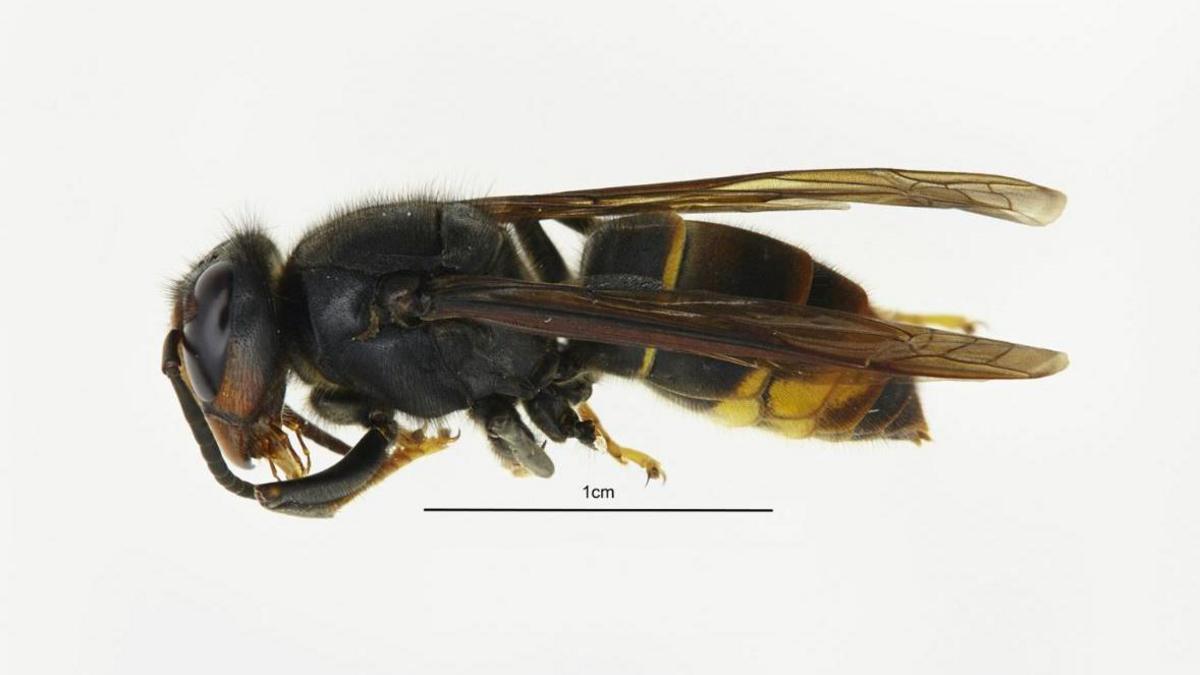Council celebrates first rooftop honey harvest
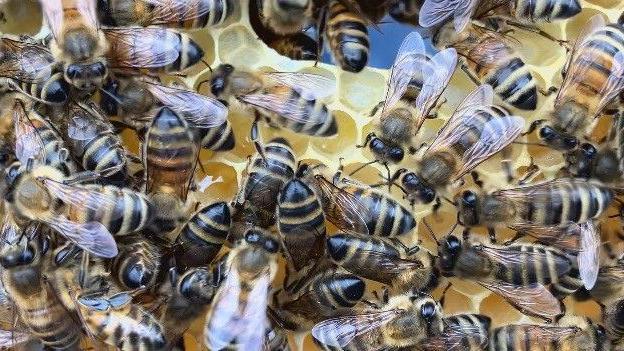
Chelmsford City Council's honeybees have been hard at work
- Published
A local authority has taken delivery of its first jars of honey that it produced from a beehive on the roof of its city centre offices.
The 50,000 native black bees have been living above Chelmsford's Civic Centre, as part of a trial to increase bee numbers.
Environmentalists warn the species is under threat from a variety of challenges, including pesticides and climate change.
Chelmsford City Council, which thinks it could be the only authority in the country to have a hive on the roof of its headquarters, hopes the experiment will encourage other local businesses to follow its example.
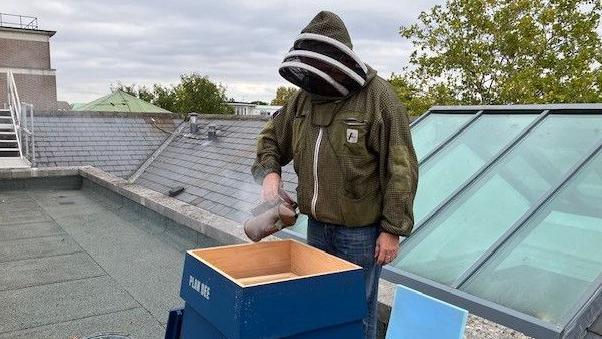
The rooftop beehive was installed earlier this year to try to encourage more bees into urban environments
Some 27lb (12kg) of honey has been collected from the hive, and the first jars of runny and set honey have been delivered at the Civic Centre, along with four boxes of honeycomb.
"The bees are thriving," said beekeeper Tony Briggs, as he checked the hive to make sure the insects had enough food, with the pollinating season coming to an end.
"We've had good honey flow from them and it was a good harvest."
The hive was installed earlier this year, as part of an experiment.
"We wanted to make a difference to bio-diversity loss," said Liberal Democrat councillor Rose Moore, who has the title of cabinet member for a greener Chelmsford.
"We know how beloved our bees are but they are really under threat, and being in quite an urban environment we wanted to trial a beehive on one of our roofs."
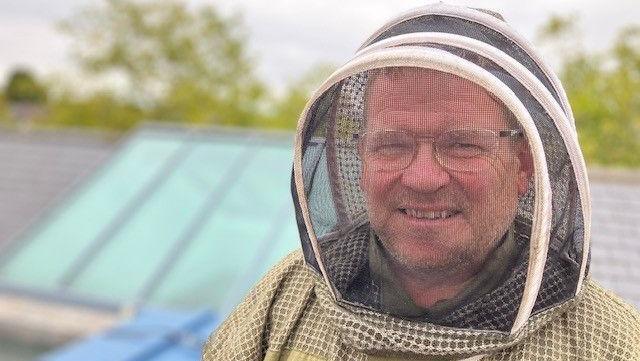
Tony Briggs says cities and towns are becoming increasingly popular with bees
The council has taken on "Beekeeper Briggs" to oversee the hive. His company, Plan Bee, manages beehives across Essex and London, with many of them on rooftops.
"Cities and towns can be a bit of a sanctuary for bees because they don't have the pesticide problem and there's forage for them all year round, because people have garden flowers and there are cemeteries and parks full of flora," he said.
"A rural crop would only have a three-month window. We're finding that city bees can forage for up to nine months of the year.
"Another advantage is that rooftop hives are away from pests and the public."
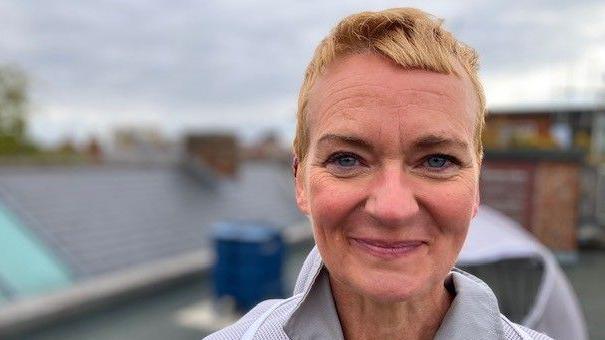
Rose Moore hoped other companies in the city would install beehives on their roofs
Moore said the bees could regularly be seen flying to the nearby Central Park and then returning to the hive.
"We have so much roof space, and it seems wasted space if we don't encourage other businesses and retail centres in the city to do the same and try and enrich the bee population, which has been so decimated over the last few decades," she said.
Many private homes and companies already have rooftop hives but not, it seems, local councils.
Glasgow City Council has had a hive on its roof for more than a decade, but Chelmsford believes it could be the only English council to have one - for now.
BBC Politics East was on at 10:00 BST on Sunday, 28 September and all editions are available after broadcast on the BBC iPlayer.
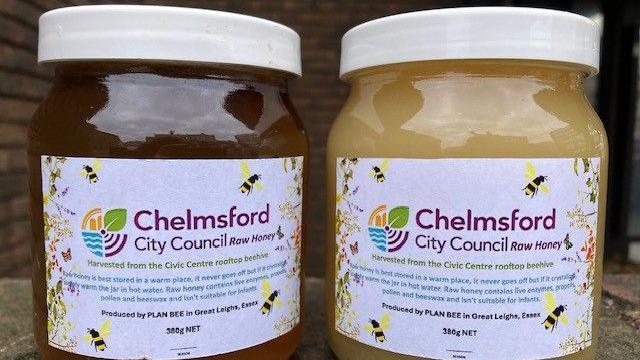
The first jars of honey produced by the council's bees - the authority has yet to decide what to do with the 35 jars
Get in touch
Do you have a story suggestion for Essex?
Follow Essex news on BBC Sounds, Facebook, external, Instagram, external and X, external.
Related topics
- Published21 June
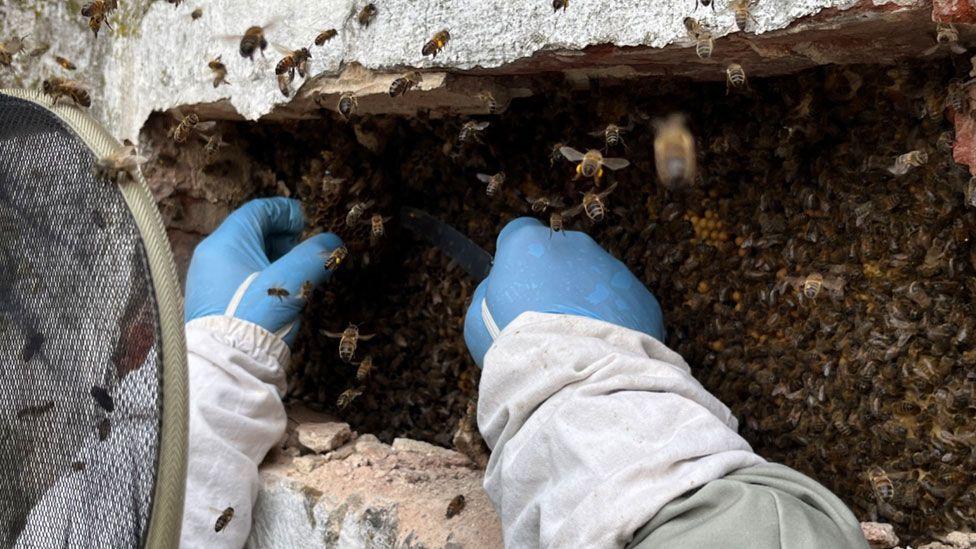
- Published18 January 2024
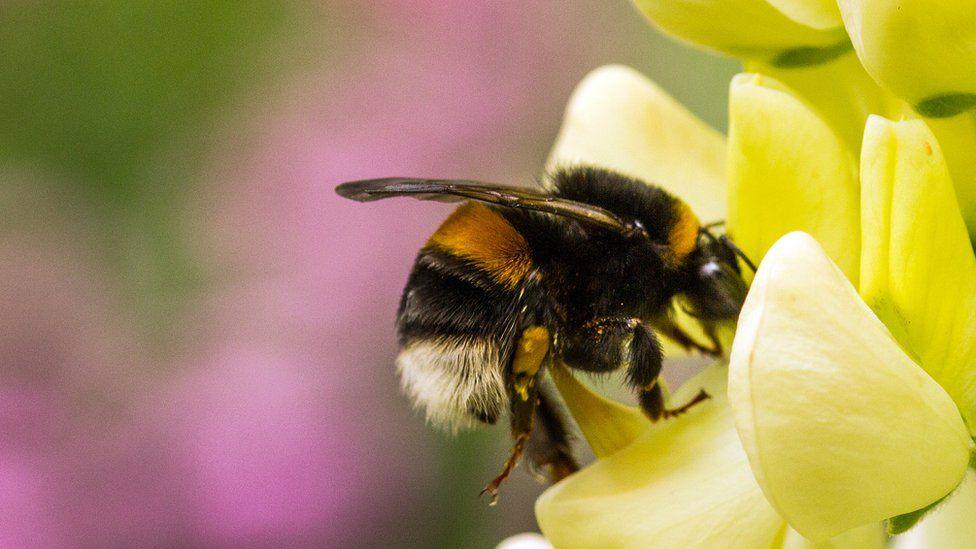
- Published20 August 2022
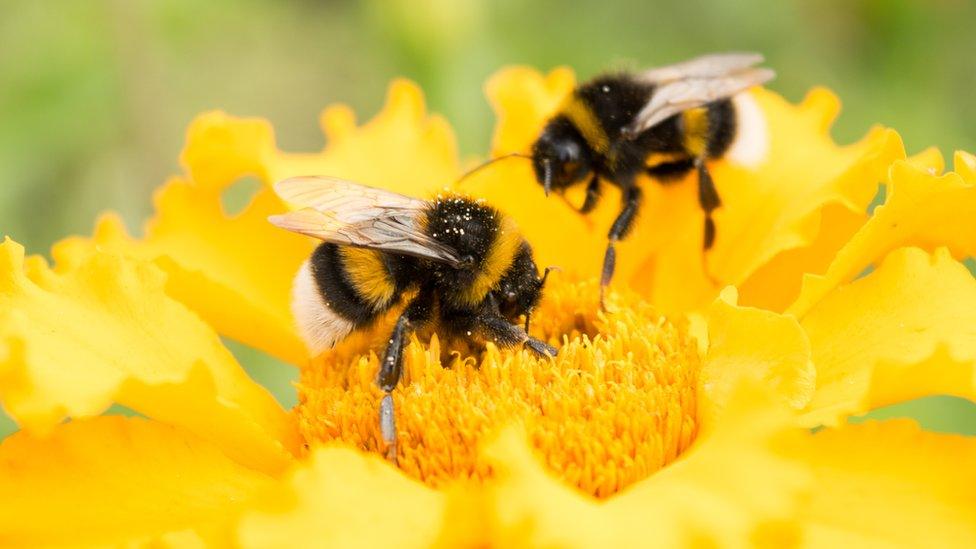
- Published4 March
